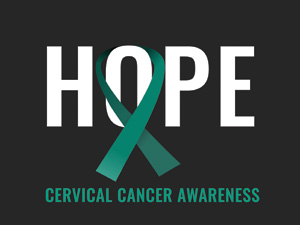
Each January communities across the country observe Cervical Health Awareness Month to raise awareness about how women can protect themselves from human papillomavirus (HPV) and cervical cancer.
According to the American Cancer Society, “an increase in routine testing for cervical cancer over the last 30 years has helped reduce deaths by more than half.”
To assist our members in the fight against cervical cancer, the Ohio Academy of Family Physicians offers an online data collection module focused on breast and cervical cancer to assist family physicians in the execution of a systematic, quality improvement (QI) initiative focused on improving the care women receive related to prevention and early detection of breast and cervical cancer.
This breast and cervical cancer QI module is free to OAFP members and aligns with the U.S. Preventive Services Task Force (USPSTF) guidelines for breast and cervical cancer screenings. The USPSTF guidelines for breast and cervical cancer prevention and screening are different for women at different ages. For the purpose of this project, users will choose to focus on a specific age group—either young women (between the ages of 21 and 26) for HPV immunization and appropriate pap testing or middle-aged women (between 50 and 65) for appropriate pap testing and mammography screening.
- Describe the importance of practice team engagement on improving cancer prevention and screening rates among female patients
- Determine the gaps in the breast and cervical screening that is currently being provided to female patients
- Implement interventions in practice to ensure appropriate breast and cervical screening in female patients
- Identify strategies to discuss appropriate cancer screenings with their female patients
- Demonstrate improvement in preventive care in female patients as a result of systems changes identified through QI initiatives.
This module will guide family physicians through three phases a pre-assessment phase, including evaluating the current practice’s care delivery and selecting a plan for improvement; an action phase, the point at which practices put their plan into action for a minimum of three months; and a post-assessment phase, including analysis of data, reflection on successes and challenges incurred, and evaluation of the program.
The module will provide an online data collection mechanism for each phase and links throughout to guidelines, resources, and references.
Learn more about completing the breast & cervical cancer module or view this short video:
For more information, please visit the OAFP website, contact Director of Performance Improvement Erin Jech, or call 800.742.7327.
*ABFM fees still apply.




